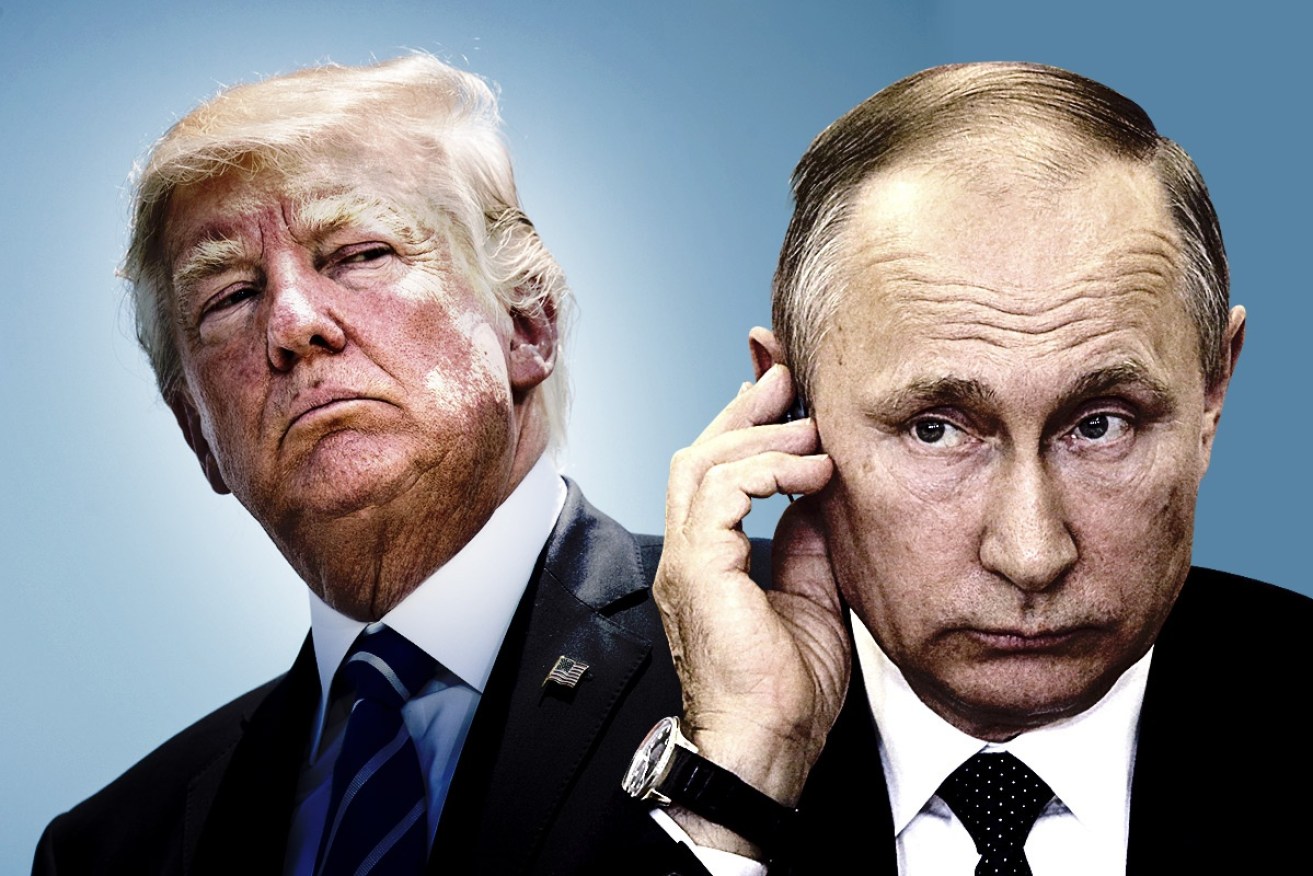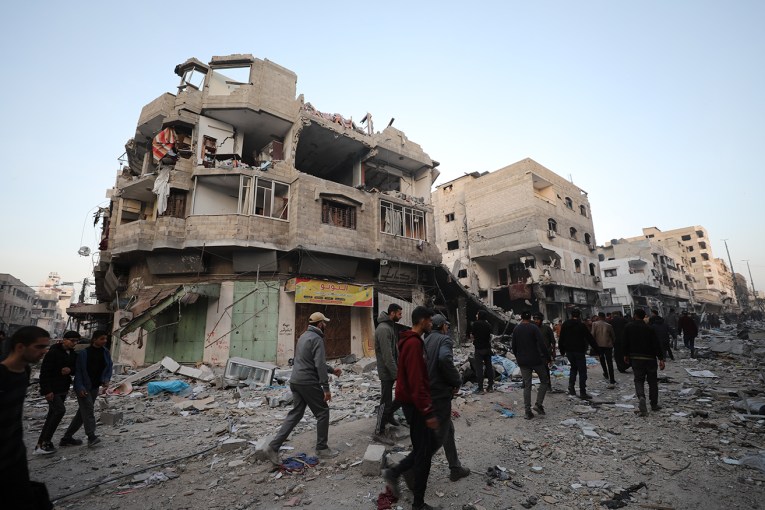Putin’s nuclear boast escalates a global ‘cold war of nerves’


Vladimir Putin's address is seen as a response to Donald Trump's more aggressive stance. Photos: Getty Graphic: Simon Rankin
The world is in the grips of an unprecedented “war of nerves” more menacing even than the Cold War, according to an expert on Russian politics.
Alexey Muraviev, an associate professor of national security and strategic studies at Curtin University, made the comment after President Vladimir Putin this week boasted of an “invincible” nuclear arsenal that could strike anywhere in the world.
Mr Putin claimed on Thursday that Moscow had a high-speed torpedo capable of carrying a nuclear warhead that can hit ships and coastal facilities.

A long-range nuclear-tipped drone torpedo would decimate coastal cities. Photo: AAP
It had also developed a missile capable of delivering a warhead at hypersonic speed, he said in his annual state of the nation address, boasting that Russia’s capabilities had advanced so far the world’s most sophisticated anti-missile systems had been rendered useless.
Those claims are no bluff or idle threat, Professor Muraviev said, and are a further sign the world is locked in a military standoff more dangerous than the Cold War.
“This is no bluff – they have what he claims,” Professor Muraviev said. “And the Americans admit that some of the key conventional combat systems are ahead of the US capabilities.
“They [US] also admit that Russia has invested so much in the modernisation of its nuclear arsenal they are far ahead of where the US is now.”

One of Vladimir Putin’s mobile nuclear missiles is raised into launch position. Photo: AAP
Professor Muraviev prefers to describe the current tensions not as a reboot of the Cold War, which was marked by vast ideological differences, but as a “war of nerves” that had several worrying facets.
“There is far less respect for each other compared with the Cold War,” he said.
“And there’s definitely far less respect by politicians for the consequences of any war, because we now have a generation of politicians who have not lived through world wars, they have not seen the horrors of a war like World War II, for example.
For them, pressing the button may not be perceived with the same significance as it did for the decision-makers of the Cold War … there is a sense of it being a virtual war, almost like some kind of computer game.”
It’s a war he says began well before the Crimea crisis and the downing of MH17, and has been waged since 2011 with “each year going from bad to ugly”.
While Mr Putin’s speech did not reveal much that was new, Professor Muraviev said it was significant for its “visuals and its language”.
“Russia still has the greatest nuclear potential in the world, but nobody listened to us,” Mr Putin said. “You listen to us now.”
Sabre-rattling about the election … and Trump
Professor Mark Edele, from the University of Melbourne’s School of Historical and Philosophical Studies, said much of Mr Putin’s show of strength was about the March 18 elections.
Professor Edele said while Mr Putin was widely expected to win another six-year term as Russian president, he is still determined to ensure a strong turnout as an endorsement of his rule.
“They are always strangely nervous about these elections,” Professor Edele said.
“They want a clear victory … and to get a good turnout, so it’s not terribly surprising that they would play the nuclear card because the entire foreign policy of Putin in the last few years has been based on Russian self-assertion.”
Meanwhile, Associate Professor Tilman Ruff of the International Campaign to Abolish Nuclear Weapons (ICAN) maintains Mr Putin’s sabre-rattling is a direct response to the more aggressive tone of the Trump administration’s Nuclear Posture Review. The review, released in early February, proposed an expanded role for nuclear weapons in US military doctrine.
“The timing of this, the strength and clarity, I suspect is a response to the [Trump] Nuclear Posture Review,” Professor Ruff said.
“The Trump administration has increased the range of of possible circumstances that would justify the use of US nuclear weapons.”








